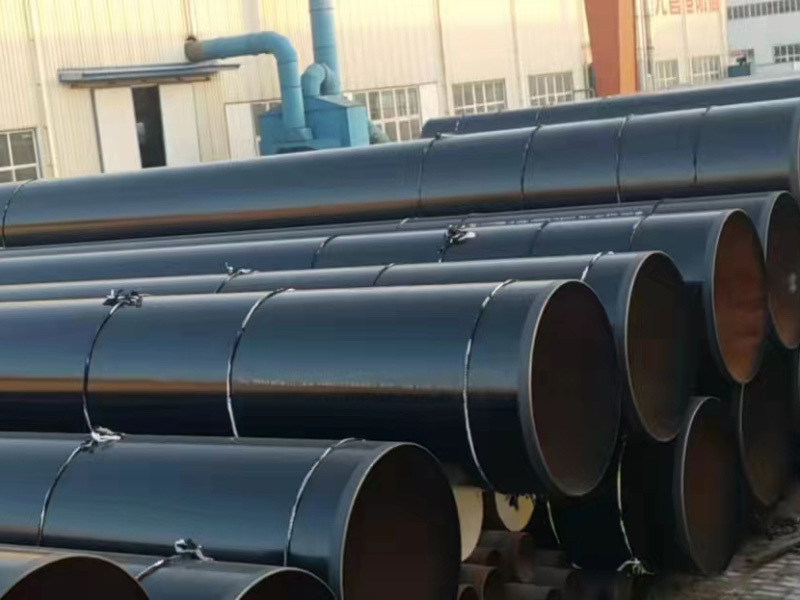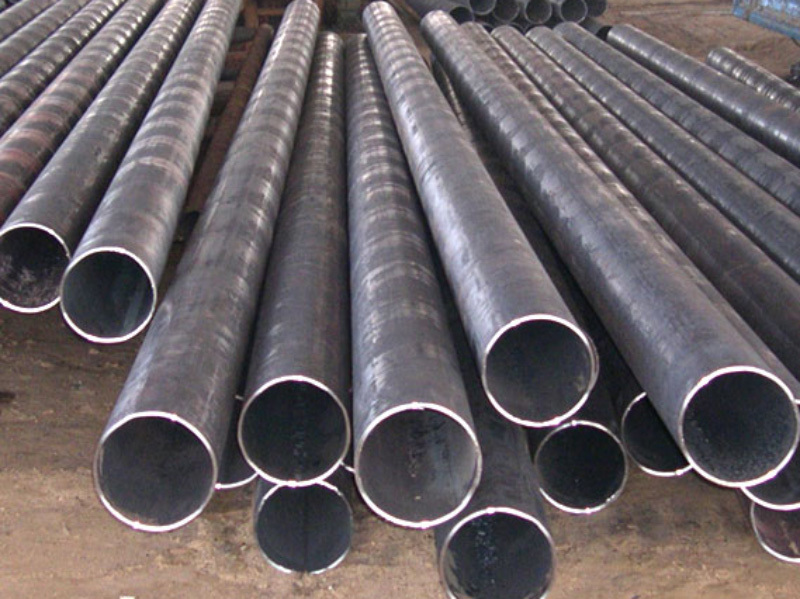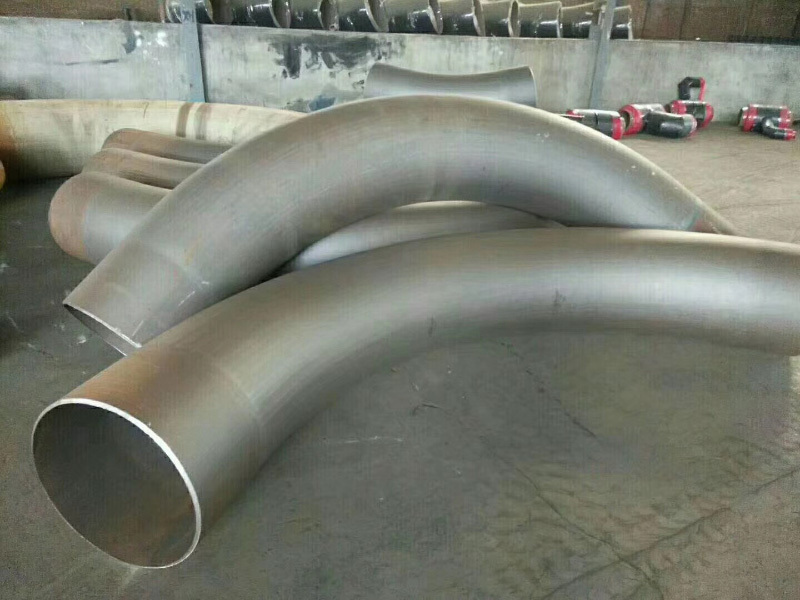Leading Smls Pipe and fittings supplier from China since 1991
API Seamless Steel Pipe: The Epitome of Quality and Reliability
API seamless steel pipes are produced using two primary methods: hot-rolled and cold drawn.
Jul 21,2025

In the world of industrial piping, few products can match the versatility, durability, and performance of API seamless steel pipes. These pipes, manufactured to meet the stringent standards set by the American Petroleum Institute (API), have become the go-to choice for a wide range of applications, from oil and gas transportation to power generation and beyond.
Production Technology: A Blend of Precision and Efficiency
API seamless steel pipes are produced using two primary methods: hot-rolled and cold drawn. The hot-rolled process involves heating a solid steel billet until it is malleable and then forcing it through a series of dies to form a hollow tube. This method is ideal for producing large-diameter pipes with thick walls and is known for its high production rates and cost-effectiveness.

On the other hand, the cold drawn process involves pulling a pre-formed tube through a series of dies at room temperature to reduce its diameter and increase its wall thickness. This method is more precise than hot rolling and is often used to produce pipes with tight tolerances and smooth inner and outer surfaces. Cold drawn pipes are also more corrosion-resistant than hot-rolled pipes, making them a popular choice for applications in harsh environments.
Executive Standards: Ensuring Quality and Consistency
To ensure that API seamless steel pipes meet the highest standards of quality and performance, they are manufactured to comply with a variety of industry standards, including API 5L, ASME B36.10, and ASTM A106/A53. These standards specify the chemical composition, mechanical properties, dimensions, and tolerances of the pipes, as well as the testing and inspection procedures that must be followed during production.
API 5L, in particular, is the most widely used standard for seamless steel pipes in the oil and gas industry. It covers a range of pipe grades, from the low-strength Grade A to the high-strength Grade X80, and specifies the requirements for pipes used in both onshore and offshore applications. Pipes manufactured to API 5L are also available in two product specification levels: PSL1 and PSL2. PSL2 pipes are subject to more stringent testing and inspection requirements than PSL1 pipes and are therefore more suitable for applications where safety and reliability are of the utmost importance.
Specification Range: A Wide Variety of Sizes and Grades
API seamless steel pipes are available in a wide range of sizes and grades to meet the specific needs of different applications. The outer diameter of the pipes can range from 1/2" to 40", while the wall thickness can vary from SCH10 to SCH160. The pipes are also available in a variety of grades, including Grade B, X42, X52, X60, X65, X70, and X80, each of which has its own unique mechanical properties and applications.
For example, Grade B pipes are commonly used for low-pressure applications, such as water and gas distribution systems, while X60 and higher grades are typically used for high-pressure applications, such as oil and gas transmission pipelines. The choice of grade depends on a number of factors, including the operating pressure and temperature of the system, the corrosivity of the fluid being transported, and the required service life of the pipe.
Materials: High-Quality Steel for Superior Performance
API seamless steel pipes are typically made from high-quality carbon steel or alloy steel, which provides excellent strength, toughness, and corrosion resistance. The most common materials used for API seamless steel pipes include GRB, Q345B, X42-X70, ST44, and ST52, among others. These materials are carefully selected and processed to ensure that they meet the strict requirements of the API standards and provide reliable performance in even the most demanding applications.
In addition to the base material, API seamless steel pipes may also be coated or lined with a variety of materials to further enhance their corrosion resistance and performance. Common coatings and linings include epoxy, polyethylene, and polyurethane, as well as corrosion-resistant alloys such as stainless steel and nickel-based alloys. The choice of coating or lining depends on the specific requirements of the application and the environment in which the pipe will be used.
Testing: Rigorous Quality Control for Peace of Mind
To ensure that API seamless steel pipes meet the highest standards of quality and reliability, they are subject to a rigorous testing and inspection process during production. This process includes a variety of non-destructive testing methods, such as eddy current testing, hydrostatic testing, ultrasonic testing, and intergranular corrosion testing, as well as destructive testing methods, such as tensile testing and impact testing.
Eddy current testing is used to detect surface and near-surface defects in the pipe, while hydrostatic testing is used to verify the integrity of the pipe under pressure. Ultrasonic testing is used to detect internal defects in the pipe, while intergranular corrosion testing is used to evaluate the resistance of the pipe to corrosion in the presence of certain chemicals. Tensile testing and impact testing are used to measure the mechanical properties of the pipe, such as its strength, toughness, and ductility.
By subjecting API seamless steel pipes to such rigorous testing and inspection, manufacturers can ensure that their products meet the highest standards of quality and reliability and provide customers with peace of mind knowing that their piping systems are safe and reliable.
Packing: Protecting Your Investment
API seamless steel pipes are typically packed in bundles or coils to facilitate transportation and storage. The pipes may also be wrapped in protective materials, such as plastic or paper, to prevent damage during handling and shipping. In addition, the pipes may be coated with a corrosion inhibitor to protect them from rust and other forms of corrosion during storage and transportation.
For customers who require special packing or handling instructions, manufacturers can often provide customized solutions to meet their specific needs. This may include the use of specialized packaging materials, such as wooden crates or pallets, or the implementation of special handling procedures to ensure that the pipes are transported safely and securely.
API seamless steel pipes are widely used in a variety of industries, including oil and gas, power generation, chemical processing, and water treatment, among others. In the oil and gas industry, these pipes are used for the transportation of crude oil, natural gas, and refined products, as well as for the construction of pipelines, refineries, and petrochemical plants.
In the power generation industry, API seamless steel pipes are used for the construction of boilers, heat exchangers, and other equipment, as well as for the transportation of steam, water, and other fluids. In the chemical processing industry, these pipes are used for the transportation of corrosive chemicals and other hazardous materials, as well as for the construction of chemical reactors and other equipment.
In the water treatment industry, API seamless steel pipes are used for the transportation of potable water, wastewater, and other fluids, as well as for the construction of water treatment plants and other infrastructure. In addition, these pipes are also used in a variety of other applications, such as the construction of bridges, buildings, and other structures, as well as for the manufacturing of machinery and equipment.






